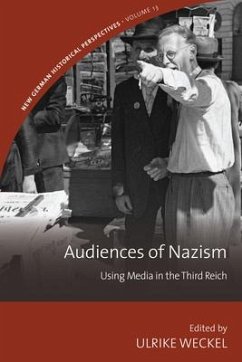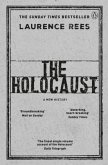"Traces of audience responses to propaganda in the Third Reich are particularly sparse given that the public sphere was so highly regulated. By taking an interdisciplinary and innovative approach to found historical sources of audiences' responses, the contributions to Audiences of Nazism critically approach the effectiveness of the Nazi media. The volume presents a comprehensive array of case studies including, but not limited to, Jewish responses to anti-Semitic media, personal reports from Nazi party rallies, responses to "degenerate art" exhibitions, and the afterlife of visual documentations of Nazi crimes. It uncovers the target groups of certain Nazi media products; how effective these products were in disseminating propaganda; and their chances to win over readers, listeners, and spectators not yet convinced of Nazism"--
Hinweis: Dieser Artikel kann nur an eine deutsche Lieferadresse ausgeliefert werden.
Hinweis: Dieser Artikel kann nur an eine deutsche Lieferadresse ausgeliefert werden.








